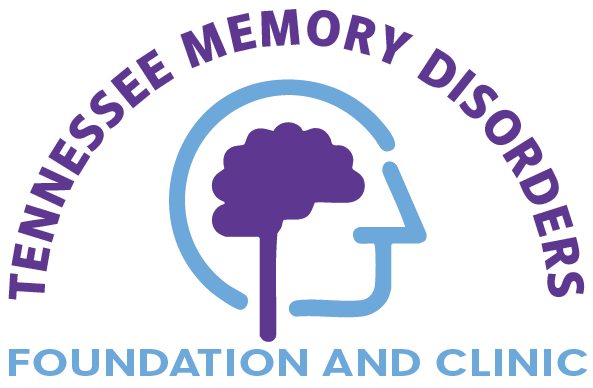Our Services
Tennessee Memory Disorders Foundation and Clinic offers clinical care and support for neurodegenerative dementia syndromes, including Alzheimer’s disease, memory disorders, and other cognitive concerns.
The New Patient Experience
The new patient experience at Tennessee Memory Disorders Foundation and Clinic involves two appointments. The first visit is an initial comprehensive evaluation with our specialty nurse practitioners. This lasts approximately two hours. For this visit, a family member or friend will need to be there to provide important input. The second visit is a diagnostic follow-up where we review the condition and care plan or conduct further testing if needed.
Your First Visit
At TMDF, we provide research and clinical care for adults age 55 and older experiencing memory problems. If you are under age 55 and have a family history of Alzheimer’s disease or have other noticeable symptoms, you may still be eligible for treatment.
If eligible, you or your family member may be a candidate for ongoing clinical trials.
Due to the nature of memory loss, we require that patients with noticeable symptoms be accompanied by someone who knows them well, such as a family member or friend, to every visit.
Cognitive Testing
A detailed physical exam and history
Orders for additional laboratory testing and imaging
Positron emission tomography (PET) is very specialized technology that uses a radiotracer to show chemical and functional changes in the brain.
A common type of radiopharmaceutical, fluorine-18 FDG (fluorodeoxyglucose), acts exactly like sugar. The brain uses sugar for fuel, so after fasting or keep your blood sugar low, the radioactive sugar goes to the brain.
The provider will explain the purpose of additional diagnostic studies, such as brain imaging, that may be ordered at this time.
MRI Brain
Magnetic resonance imaging (MRI) of the brain is a safe and painless test that uses a magnetic field and radio waves to produce brain pictures.
A MRI scanner consists of a large doughnut-shaped magnet that often has a tunnel in the center. Patients are placed on a table that slides into the tunnel. We recommend centers have larger openings or even sedation to help patients with claustrophobia or anxiety.
CT head
A computed axial tomography (CT) scan is a painless testing that uses a donut shaped machine to takes pictures of the brain with special X-rays.
A PET/CT scan:
Positron emission tomography (PET) is very specialized technology that uses a radiotracer to show chemical and functional changes in the brain.
A common type of radiopharmaceutical, fluorine-18 FDG (fluorodeoxyglucose), acts exactly like sugar. The brain uses sugar for fuel, so after fasting or keep your blood sugar low, the radioactive sugar goes to the brain.
Lumbar Puncture
A lumbar puncture, or spinal tap, is a medical test that involves collecting a small sample cerebrospinal fluid (CSF) from the lower spine to examine for proteins such as amyloid plaque and tau tangles. CSF is a clear liquid that is a cushion for the brain and spinal cord. This is done with x-ray guidance and a partner radiology clinic by interventional radiologists.
Genetic testing
Genetic tests look for missing or defective genes. This helps a patient know if they have a disease that is inherited or not. This affects the treatment plan. A small sample of blood or a q-tip swab of the mouth are used to analyze these genetic tests.
Your Second Visit
(Diagnostic follow-up)
Prior to the second visit, the doctor will do a complete review of the patient’s case with the team. She will review the other testing (cognitive, lab tests, imaging) prior to the visit and at the time of the visit.
During the appointment, the doctor will review the results of all tests and imaging with the patient. She will explain the diagnosis and review a treatment and care plan. If a diagnosis is made, a take-home packet of information will be provided.
Sometimes additional testing is needed to make a diagnosis and another visit with the doctor will be scheduled after the needed imaging or testing. If appropriate, medications will be started. Also, we can recommend clinical trials that are available.
Routine follow-up visits
After the diagnosis is made, you will schedule a follow-up visit with a provider, usually with our nurse practitioners. Some follow-up visits may be with the doctor. Every six months we will perform cognitive screening.
